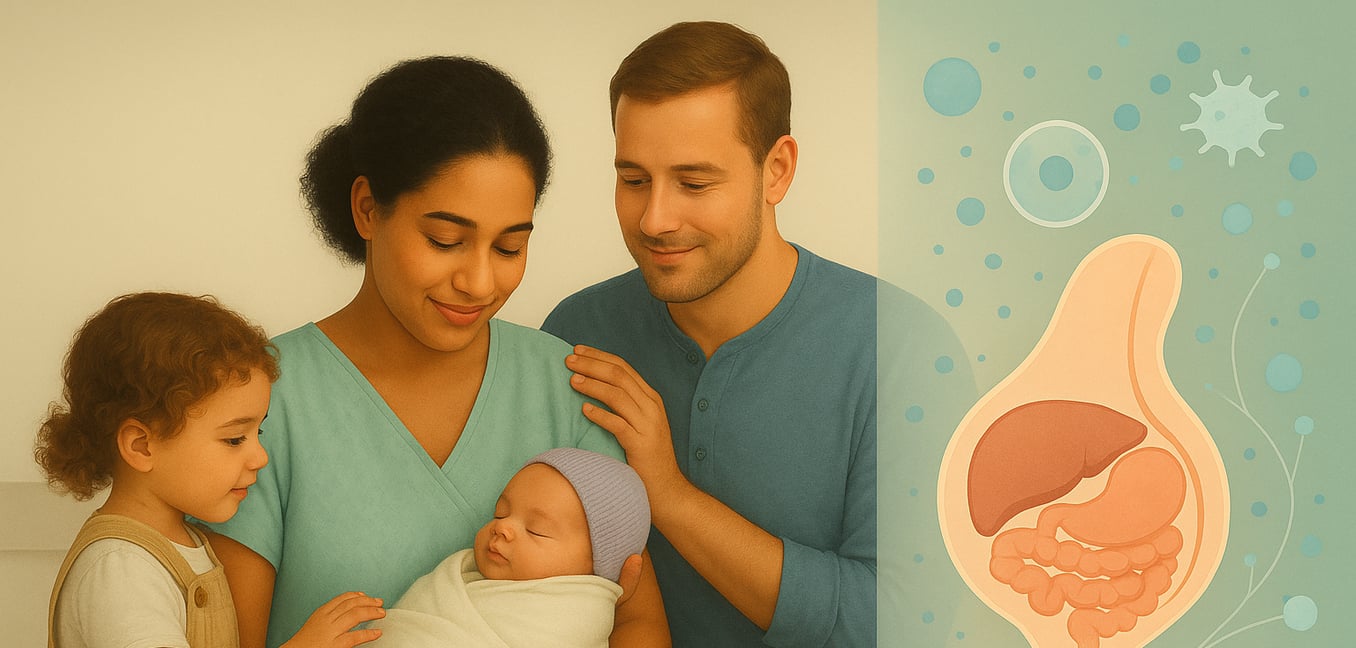Finding Support for an Omphalocele Diagnosis
Receiving a diagnosis of omphalocele for your child can feel overwhelming, but it is crucial to know that you are not alone. There are extensive support systems available, from dedicated peer groups to specialized medical teams, ready to help you navigate this journey.
Omphalocele is a type of birth defect where an infant’s abdominal organs, like the intestines and liver, remain outside the body in a protective sac at the base of the umbilical cord. This medical complexity is precisely why building a strong support network is one of the most important first steps you can take for your child and your own well-being.
Connect with Other Families: Online Communities and Non-Profits
While your medical team provides clinical care, connecting with other families offers an equally vital layer of emotional and practical support. Finding solidarity with people who truly understand the day-to-day realities of omphalocele can transform feelings of isolation into a sense of community and empowerment.
-
Join online peer groups. Search on platforms like Facebook for private, dedicated groups for omphalocele families. These communities offer 24/7 emotional support and invaluable practical advice on daily challenges, from managing feeding tubes to finding comfortable clothing for your baby.
-
Contact non-profit organizations. Established organizations like Avery's Angels Gastroschisis Foundation (which also supports omphalocele) and The O Foundation for Omphalocele Awareness provide vetted medical information, family support programs, and hospital care packages. They often facilitate research and host events that connect families.
-
Gain a global perspective. Because omphalocele is rare, online communities allow you to connect with families worldwide. Learning about different treatment approaches and long-term management strategies can empower you to have more informed discussions with your own medical team.
Your Medical Team: Your First Source of Support
Your child’s medical team is your primary partner in care. This group of specialists, including pediatric surgeons, neonatologists, and cardiologists, is there not just to treat your child, but to guide your family through complex decisions. Viewing them as allies can turn a daunting process into a collaborative effort.
Approaching conversations with a clear strategy will help you feel more in control and ensure you can advocate effectively for your child.
-
Come to appointments prepared. Stress can make it hard to remember questions. Before each appointment, write down your questions, perhaps organized by topic like "Surgery" or "Feeding." Do not hesitate to ask for clarification on medical terms or for information to be repeated.
-
Ask for a primary point of contact. A child with omphalocele is often cared for by many specialists. Ask for a designated care coordinator, case manager, or primary nurse who can serve as your central contact. This person can help schedule appointments and ensure the entire team is on the same page, reducing stress and preventing miscommunication.
-
Seek out hospital support systems. Hospitals offer resources beyond medical treatment. Ask to speak with a social worker who can help you navigate insurance, financial assistance, and community resources. Child life specialists are another incredible asset, trained to help children and siblings cope with hospitalization through play and age-appropriate explanations.
Understanding the Medical Journey
Omphalocele is often more than an abdominal wall defect; it frequently occurs alongside other health conditions that require specialized care. Understanding these associated issues helps you anticipate your child’s needs and work more effectively with your medical team.
Pulmonary Hypoplasia and Pulmonary Hypertension
These respiratory issues are among the most significant challenges, particularly for babies with giant omphaloceles. Because a large volume of abdominal organs develops outside the body, the abdominal cavity can remain small, restricting space for the chest and lungs to grow. This may lead to underdeveloped lungs (pulmonary hypoplasia) and related high blood pressure in the lung's arteries (pulmonary hypertension). Many infants require breathing support from a ventilator after birth and will be closely monitored by a lung specialist (pulmonologist).
Congenital Heart Defects
The heart develops during the same critical early weeks as the abdominal wall, which is why heart defects are common in children with omphalocele. For this reason, nearly every baby diagnosed will have a detailed heart ultrasound, called an echocardiogram, to check the heart's structure and function. A pediatric heart specialist (cardiologist) will be an essential part of the care team to monitor and manage any issues, which can range from minor to those requiring medication or surgery.
Chromosomal and Genetic Syndromes
In many cases, omphalocele is one feature of a larger genetic condition. More than half of babies with the condition have an underlying chromosomal difference, such as Trisomy 13, 18, or 21 (Down syndrome), or a genetic syndrome like Beckwith-Wiedemann syndrome, which can affect growth. Genetic testing is often recommended to provide a more complete diagnosis and help your team anticipate other potential health needs. A genetic counselor is an invaluable resource who can help you understand test results and what they mean for your child’s long-term health.










